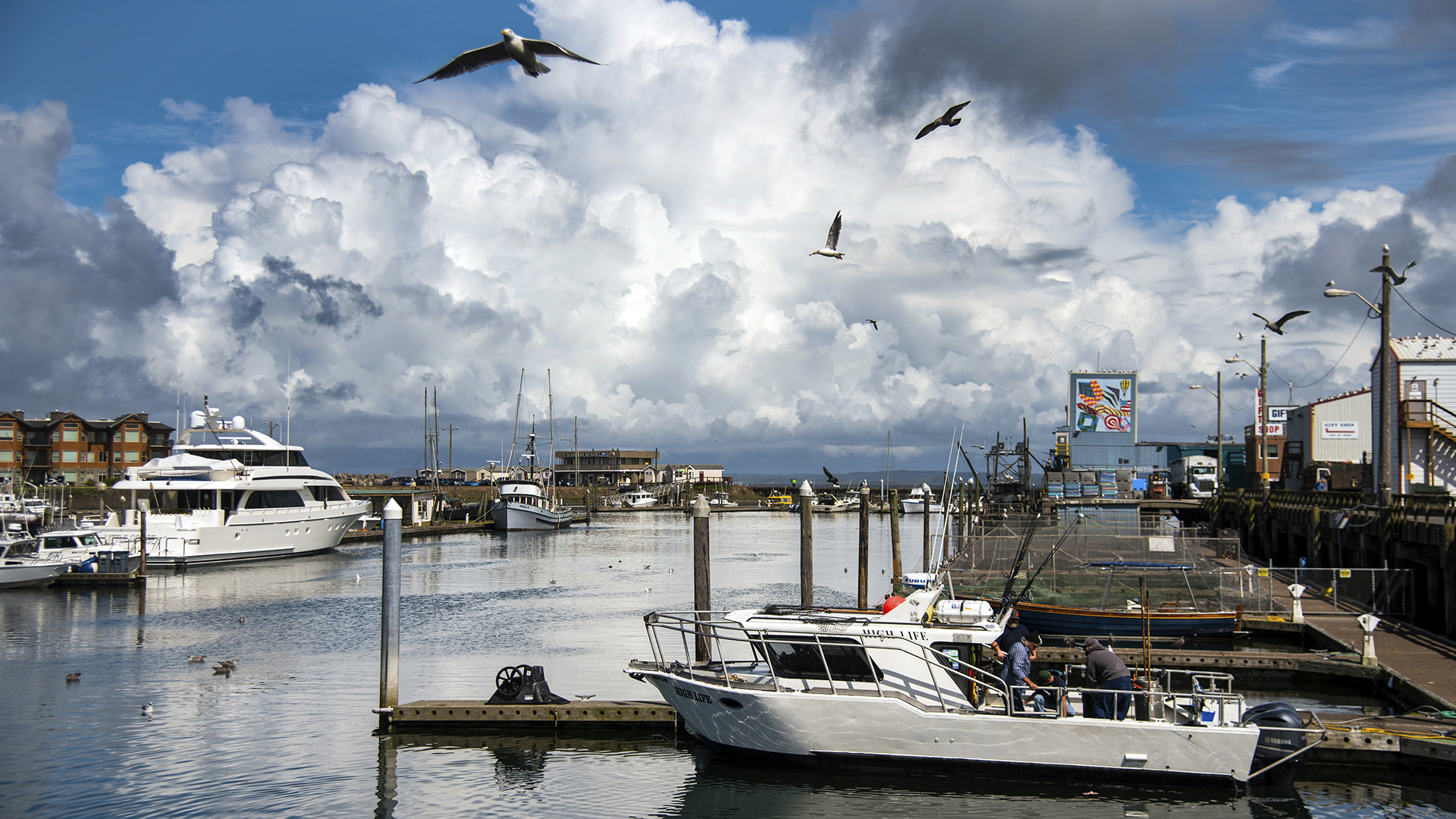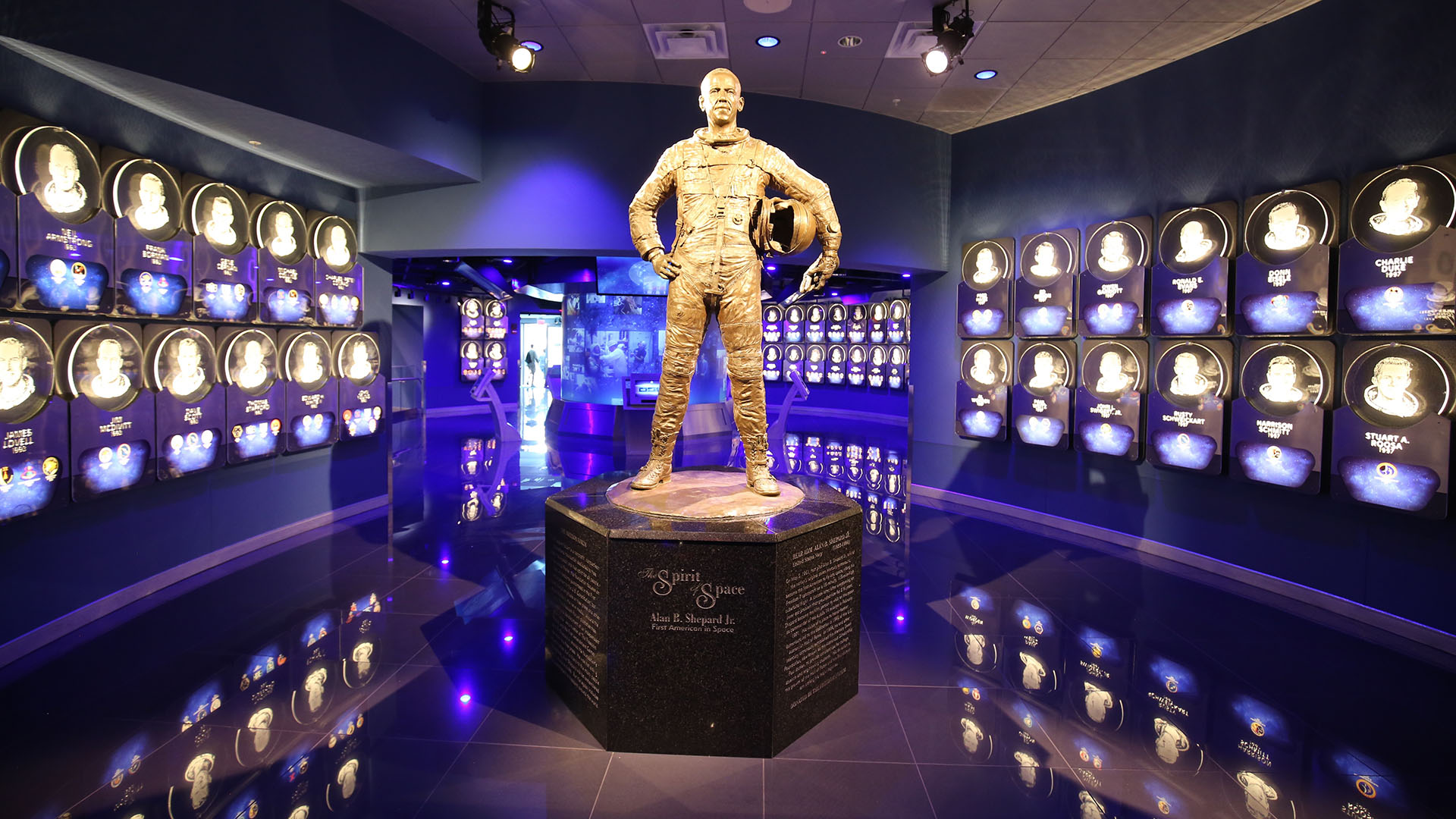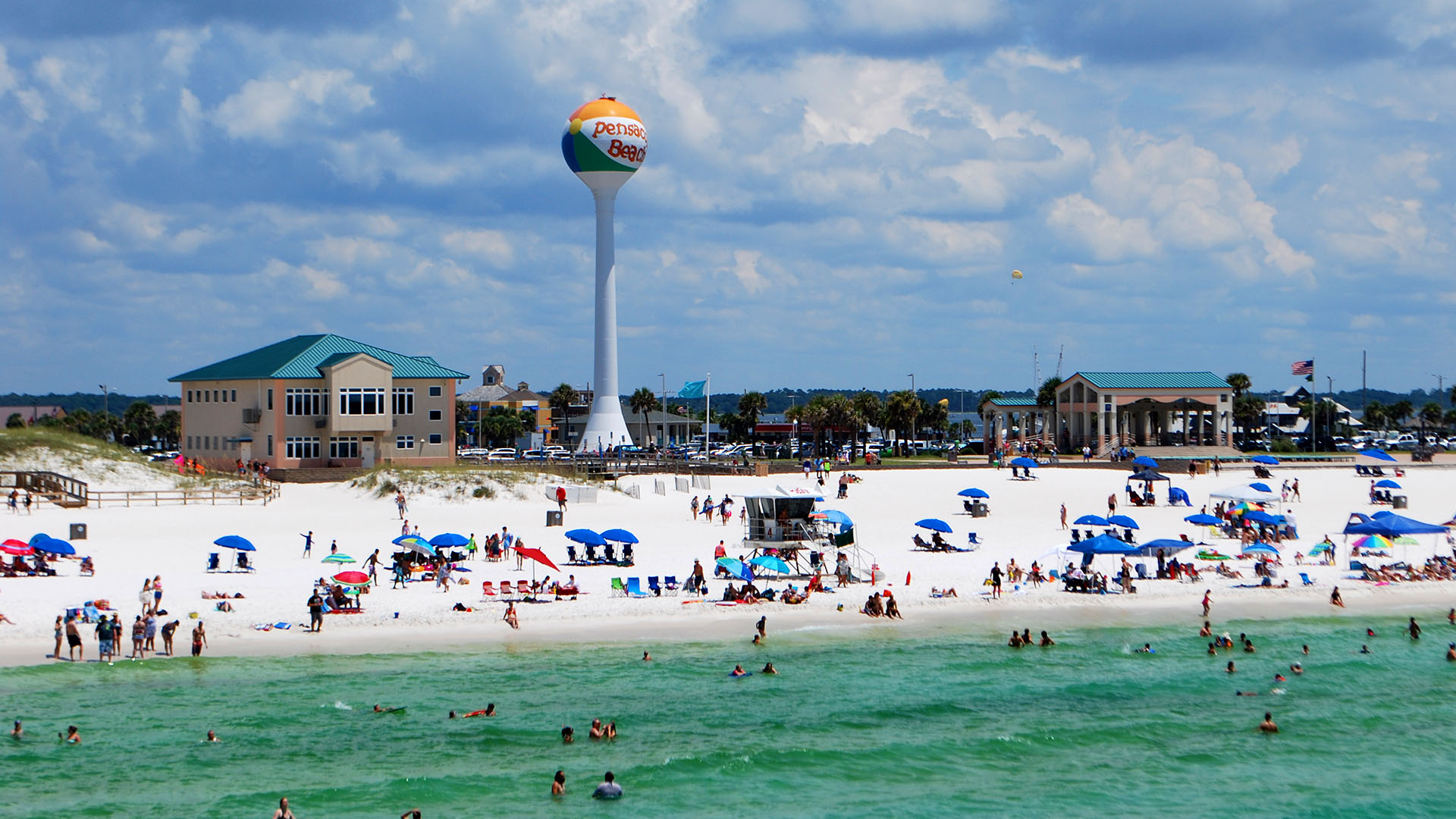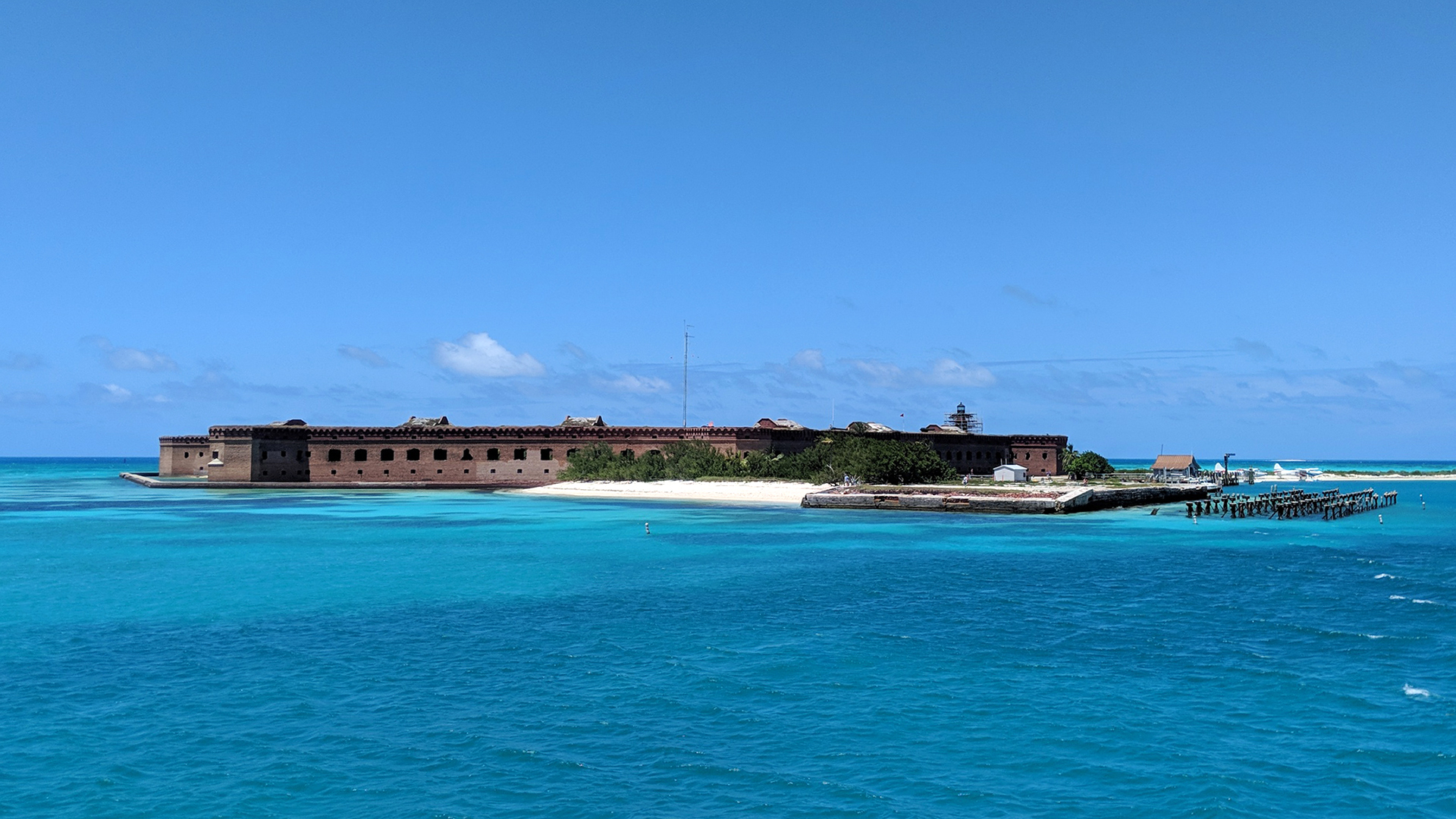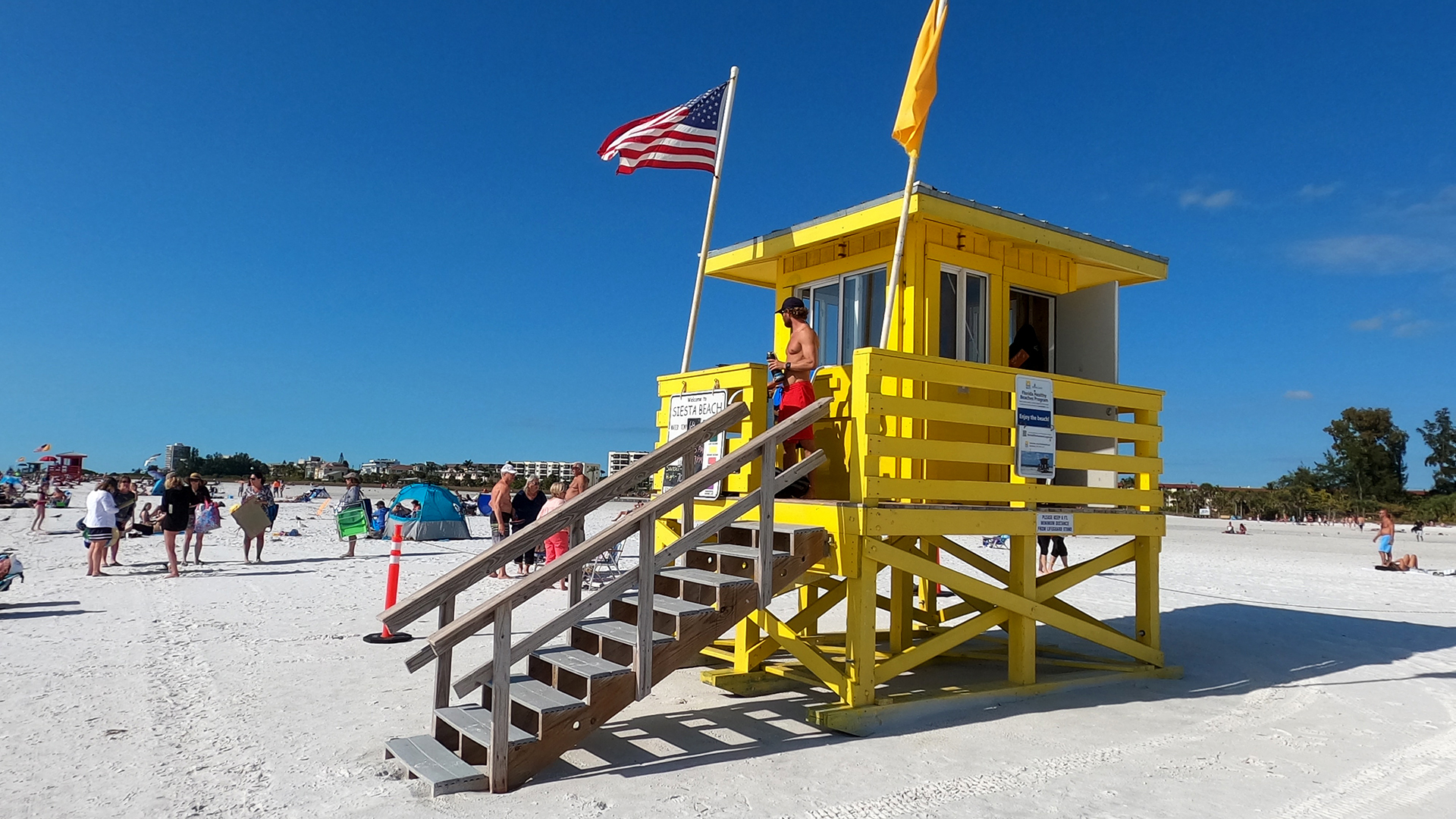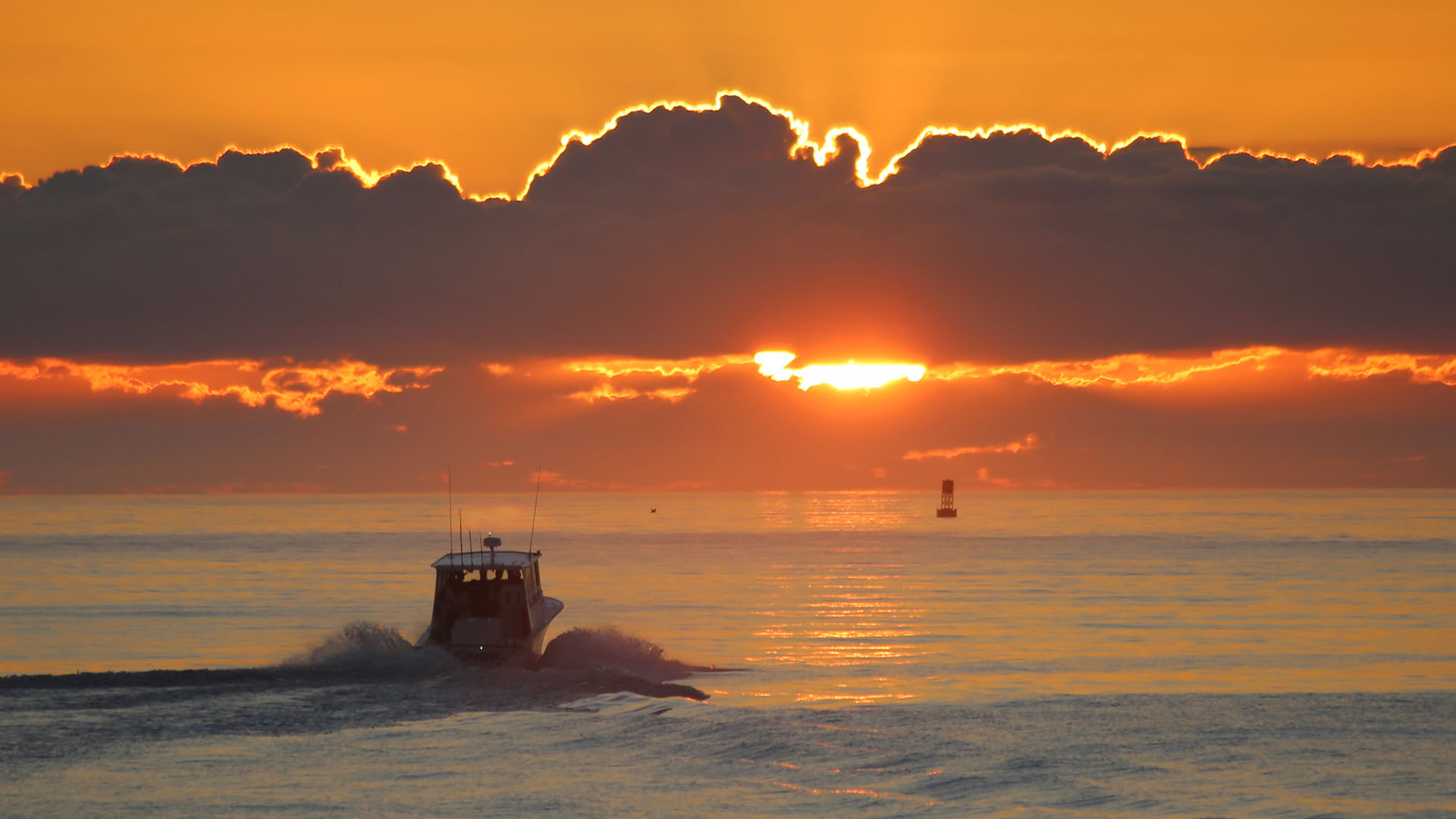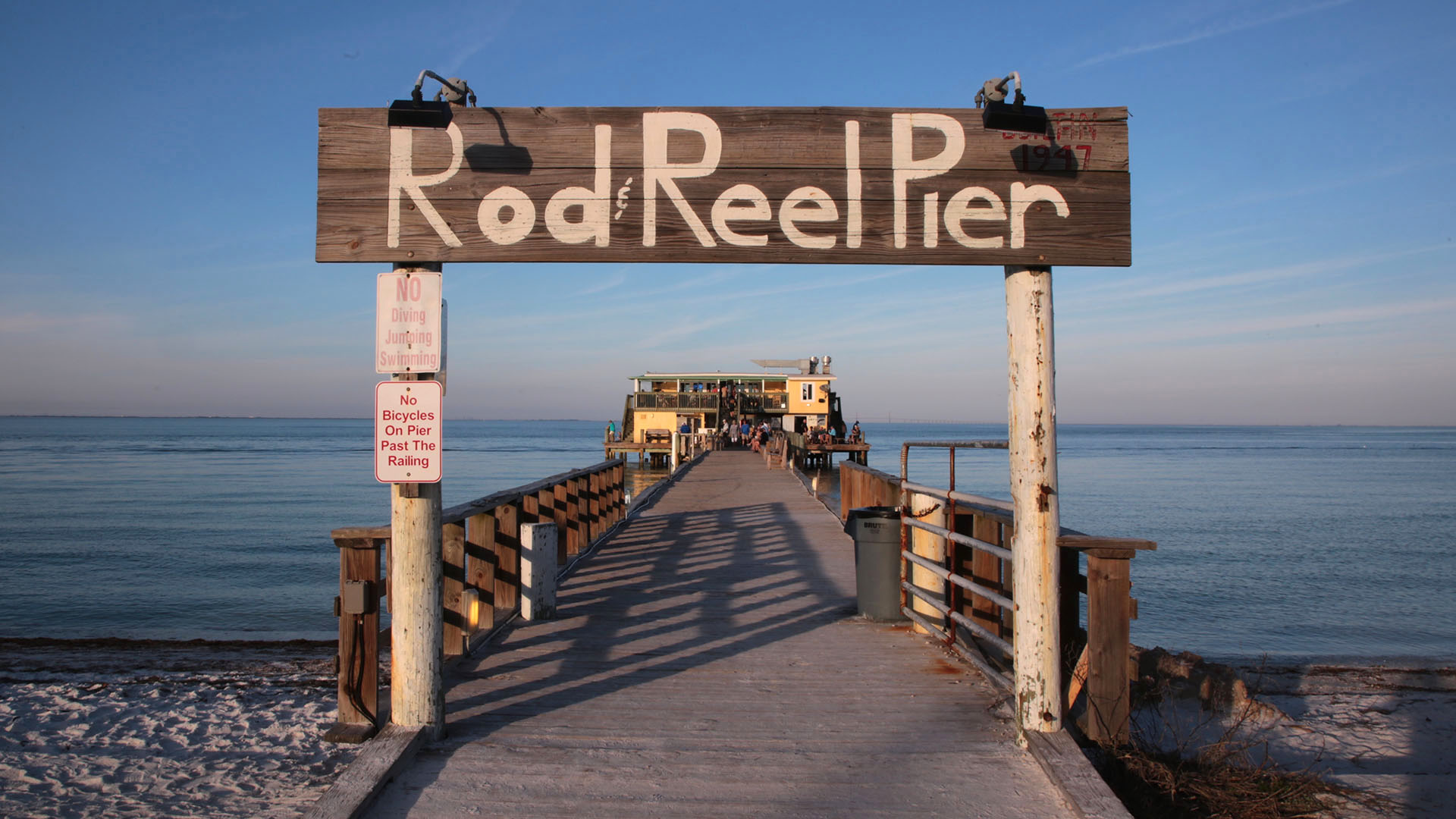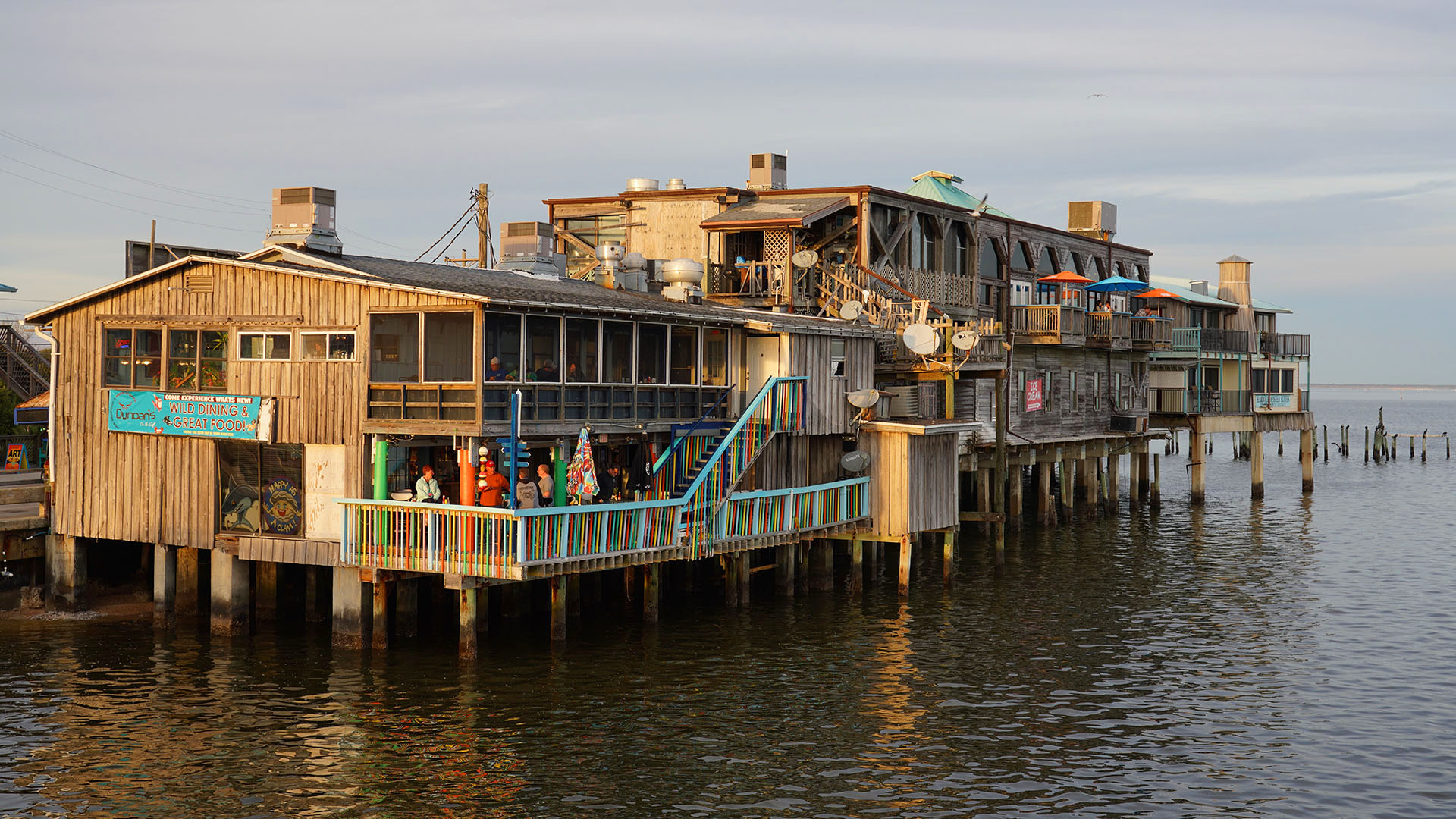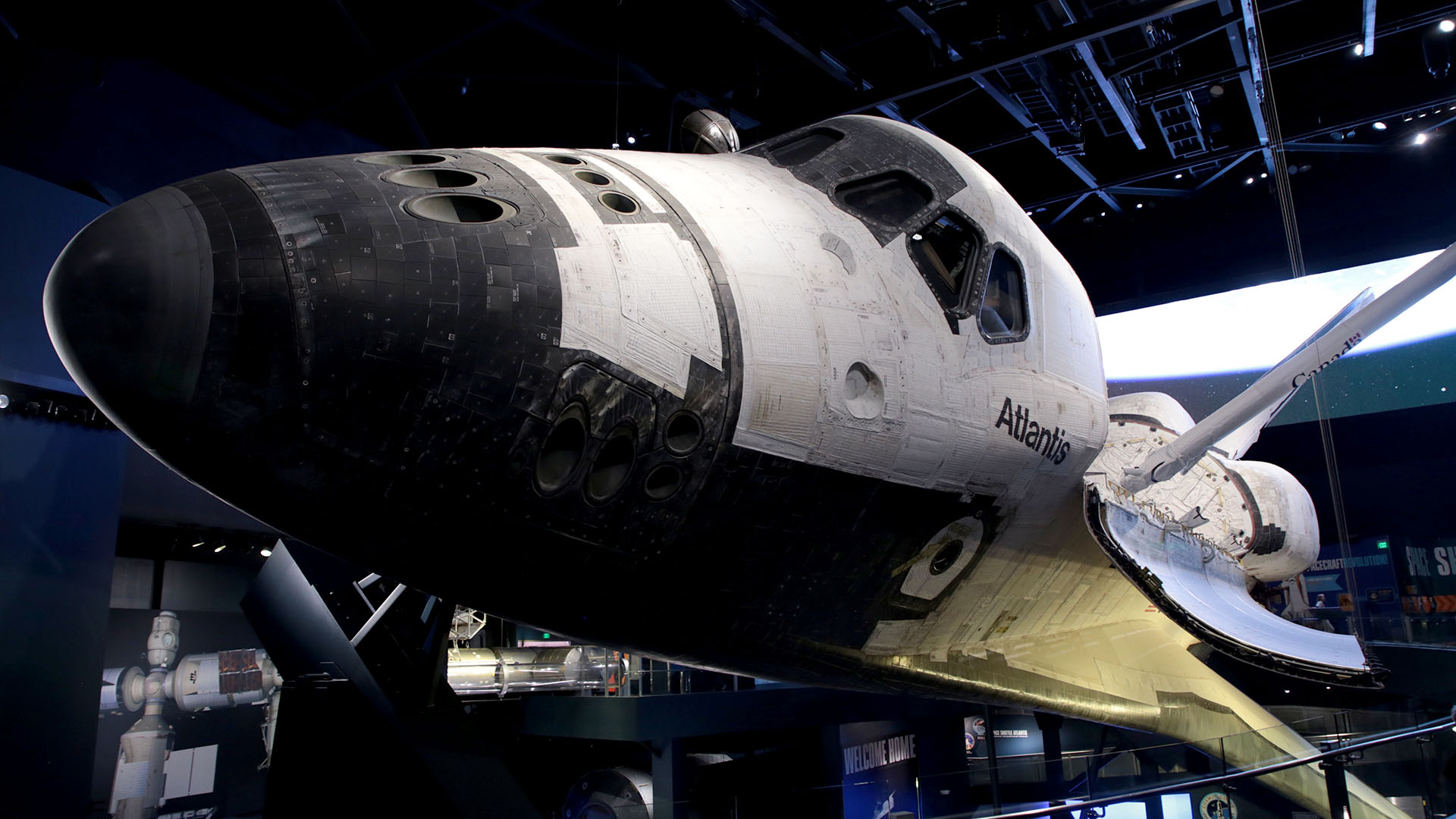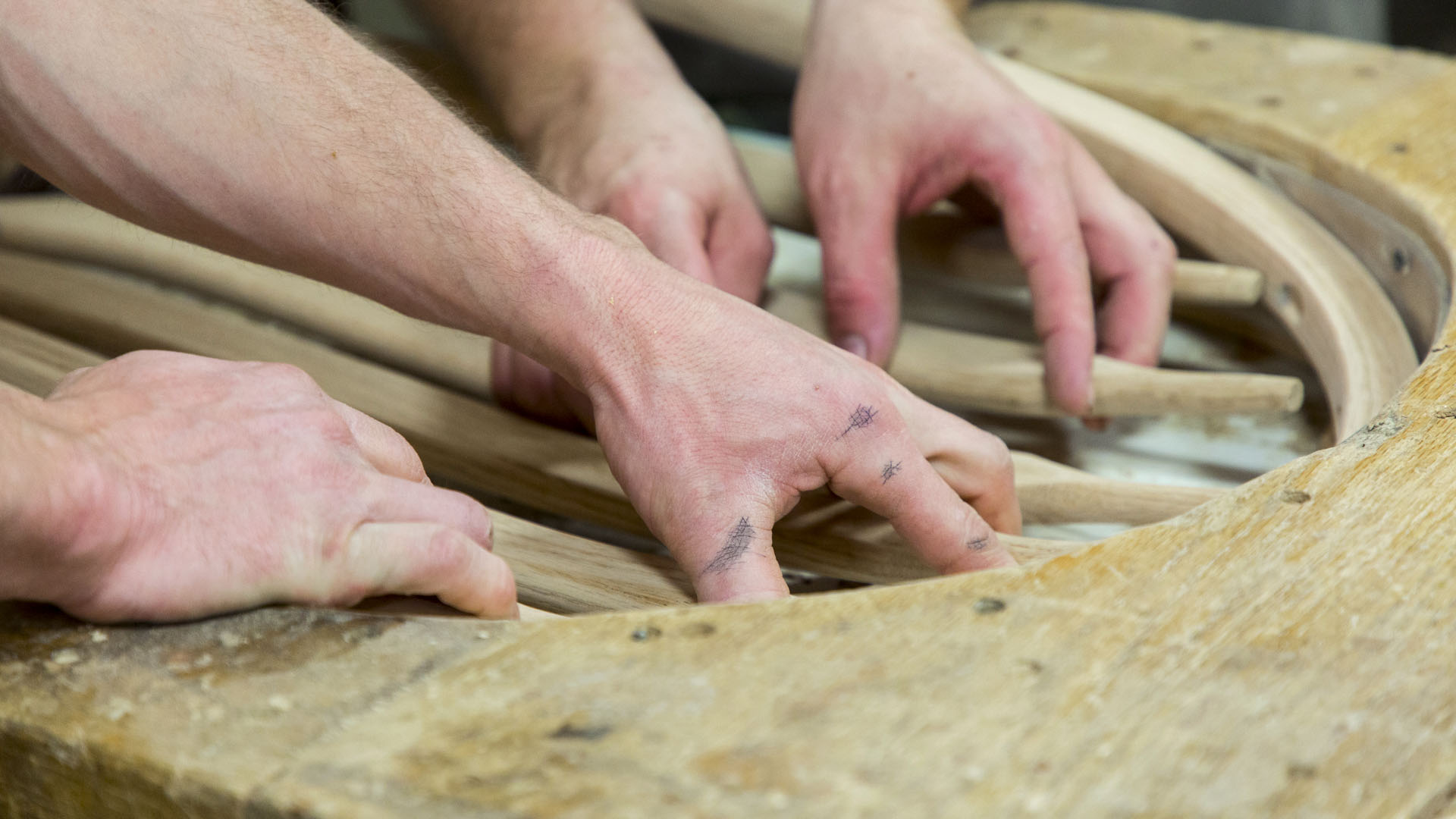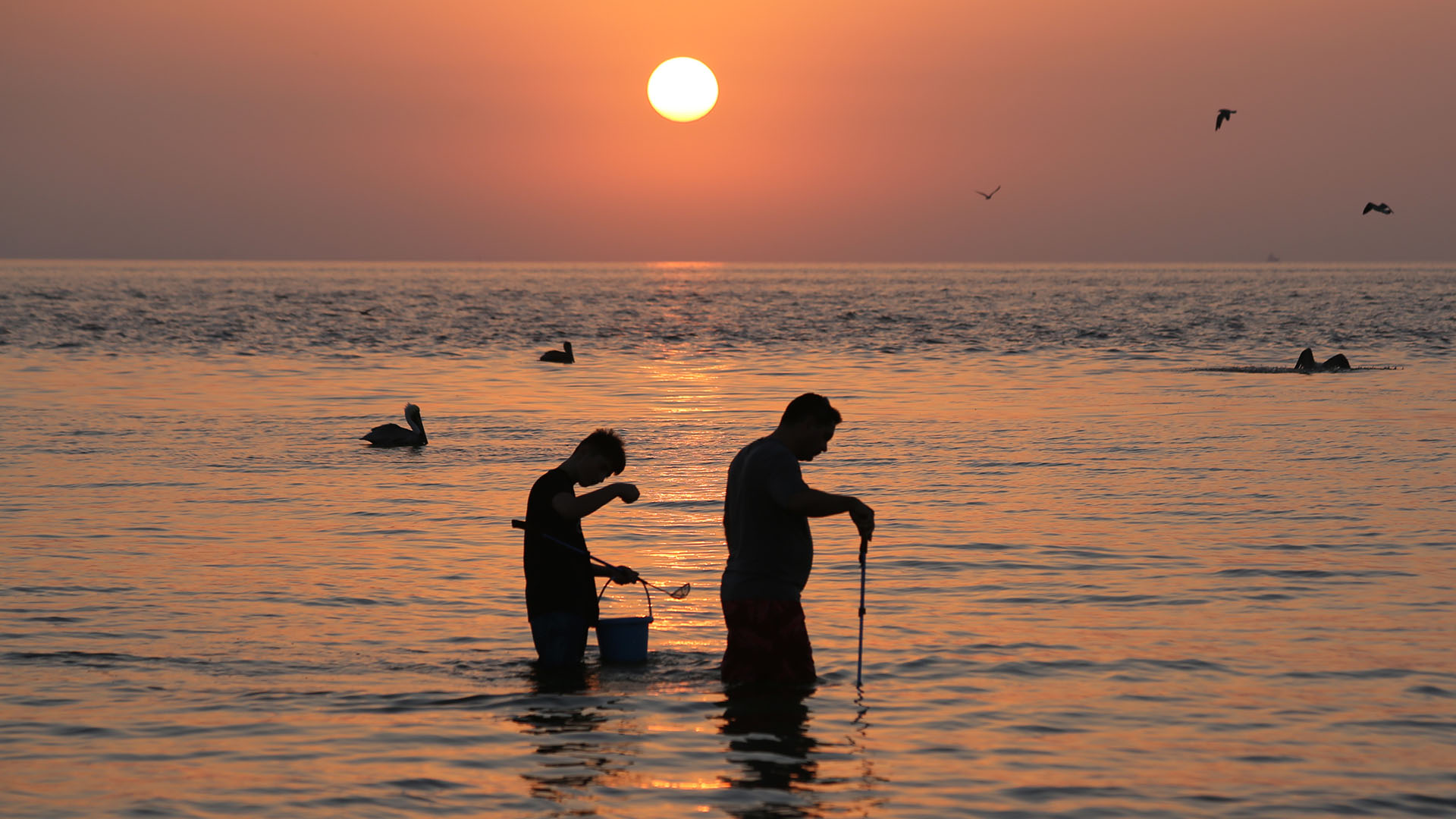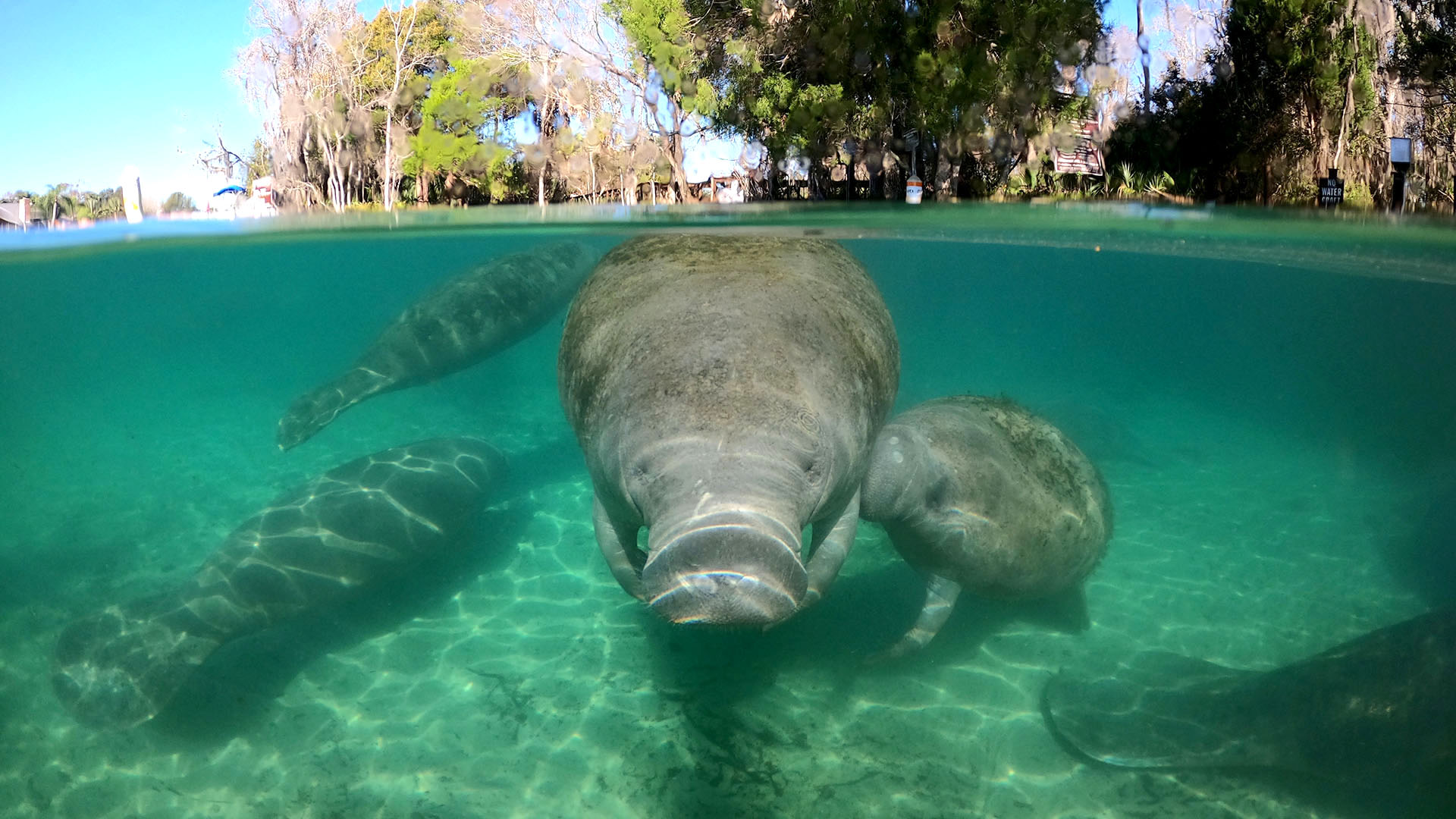Sanibel is a Treasure Trove of Family Fun

Diane Williams and her son, Elliot, watch the sun rise on Lighthouse Beach at Sanibel.
Story and photos by Charles Williams
Charles is the editor for Pursuits with Enterprise. Email the author.
Nearby Captiva and Fort Myers also offer chances to create lasting memories.
I’ve always loved “Swiss Family Robinson,” the 1960 film version, where a family becomes shipwrecked on an island, spends time together and learns to love their surroundings.
And they got to live in a cool treehouse to boot.
For families, Sanibel provides this sense of island adventure among natural beauty; it’s a place to relax and bond, a destination where the simple act of watching the sun rise and fall is an event to be savored.
That’s my kind of vacation.
Sanibel and the surrounding area offer fun-filled activities — everything from shelling to sailing. Here are some suggestions on how to make lasting family memories.

A White Ibis rests in J.N. "Ding" Darling National Wildlife Refuge.

Visitors to Cayo Costa State Park look for seashells.
Look for Shells
Sanibel has some of the best beaches in the world for shelling. The island’s unusual east-west orientation allows unbroken shells to gently be pushed up the sloping sea floor, right onto the beach. Nearby Captiva also boasts great shelling.
More than 450 species of shells dot the sand, and you’ll likely see people doing the “Sanibel Stoop” and “Captiva Crouch” to pick up special shells such as lightning whelks, alphabet cones, Florida fighting conchs and more. But the real prize is the rare brown speckled junonia, possibly a once-in-a-lifetime find.
Study tide charts and beachcomb around low tide when more shells are exposed. Winter storms churn the ocean, and shelling often is best right afterward.

People beachcomb at Lighthouse Beach.

Bikes are common along Periwinkle Way.
Ride a Bike
Sanibel has 25 miles of flat bike trails, making riding an enjoyable activity for all ages. Paths meander along Periwinkle Way — the main street that features many shops and restaurants — and all over the island.
Several locations offer bicycle rentals, including Billy’s and Finnimore’s Cycle Shop. If you’re staying at a resort, check if resort fees include bicycle rental.

The J.N. "Ding" Darling National Wildlife Refuge has flat bike trails.

The desserts at the Bubble Room restaurant are delicious.
Eat Somewhere Fun
Sanibel and Captiva have lots of great dining options, but the pastel-colored Bubble Room stands out if you’re traveling with younger kids. On its present site since 1979, this funky establishment features decades-old toys, moving trains and carnival knickknacks. But the most memorable reason to go is the monster-sized pieces of cake, temptingly presented on a silver tray by your “bubble scout” server.
The colorful Over Easy Cafe serves great corned beef hash, eggs Benedict, and biscuits and gravy for breakfast. The Island Cow — which advertises “udderly great food” — offers fun atmosphere that is perfect for tired kids after a long day at the beach.

The Island Cow restaurant offers a lively atmosphere.

An American alligator relaxes at J.N. "Ding" Darling National Wildlife Refuge.
Get Close to Nature
The 6,400-acre J.N. "Ding" Darling National Wildlife Refuge features more than 245 bird species. If you’re lucky, you also might spot a manatee or dolphin in adjacent Tarpon Bay or an alligator basking in the warm sun.
Cars are allowed to drive slowly through the refuge. Hiking trails — varying from short walks to 4-mile jaunts — pass through mangrove forests, cordgrass marshes and West Indian hardwood hammocks. The visitor center has educational displays, a gift shop and restrooms decorated with an underwater theme.

A Little Blue Heron struts on the shore.

Dolphins follow a boat in Pine Island Sound, just off the coast of Captiva.
Get Away for a Day
As lovely as Sanibel and Captiva are, sometimes it’s fun to spend a day somewhere else. I booked two excursions with Captiva Cruises, which offers day trips to nearby barrier islands.
If you want to look for shells in an unspoiled setting, Cayo Costa State Park is a great day trip. The island has 9 miles of uncrowded beaches and acres of pine forests, oak-palm hammocks and mangrove swamps. Cayo Costa is accessible only by private boat or ferry.
Cabbage Key has hiking trails and a restaurant. Jimmy Buffett supposedly was inspired to write “Cheeseburger in Paradise” here, and surprise, you can eat a juicy burger, too. The walls are covered with dollar bills. Our tour guide claimed fishermen put spare money on the walls and wrote their names on it. That way, they wouldn’t go hungry at the end of a bad fishing expedition.

Two people hug as the sun sets.

Visitors see the winter getaways for Thomas Edison and Henry Ford.
Learn About History
Thomas Edison’s impact on modern technology and society is astounding. In 84 years, he acquired 1,093 patents and helped usher in the phonograph, the incandescent light bulb and early motion picture cameras. In 1896, Edison met automobile manufacturer Henry Ford, and they became lifelong friends.
Both men also were smart enough to avoid cold winters. Visitors to the Edison & Ford Winter Estates in Fort Myers can see the gardens and outside of the homes — and the inside through windows — on an audio or a guided tour given by site historians. Admission also gets you in the Edison Ford Museum and Edison’s Botanic Research Laboratory.

The Edison Botanic Research Laboratory is fascinating.

A manatee submerges at Manatee Park in Fort Myers.
See the Manatees
Otherwise known as sea cows, these slow 1,000-pound marine mammals eat six to eight hours a day, gobbling up 100 pounds of vegetation.
Manatee Park in Fort Myers is a great place to get up close to these lovable creatures. From the water’s edge, it’s easy to spot them playfully snorting and submerging. But it’s even more fun to hop in a kayak and float among them. To get the most out of your visit, attend a free lecture about manatees.

Manatee Park features hiking trails.
Related
Read more stories about Florida.
- Florida Trips
- Pacific Coast Highway - Washington and Oregon
- Attractions Near Disney World
- Road Trip to Florida Beaches
- Day Trip to Dry Tortugas National Park
- Beaches Near Disney World
- Weekend Getaway to Florida's Space Coast
- Weekend Getaway to Anna Maria Island, Florida
- Disney Florida Trips
- Take a Leisurely Drive Down to Key West
- Florida Road Trip from Cedar Key to Sanibel
- Road Trip for Florida Fishing
- Kennedy Space Center Launches Memories
- Road Trip to see Amish Woodworking
- Weekend Getaway Fun for Families in Sanibel, Florida
- Weekend Getaway for Shells in Sanibel, Florida
- How and Where to Swim with Manatees in Florida

